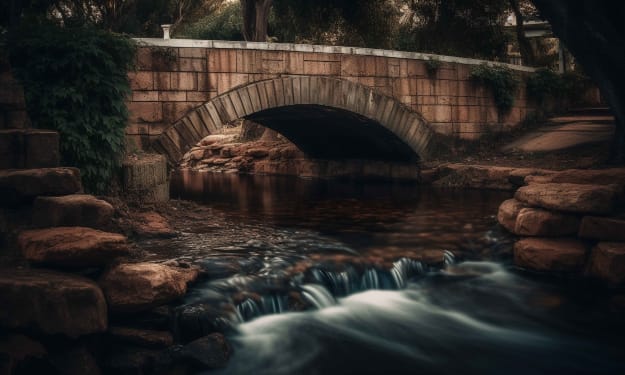WHAT IF
Something incredibly strange is happening.

A mysterious gravitational disturbance is altering our solar system. Jupiter is now on a collision course with the Sun. What would happen if the two gas giants collide? Would the Sun grow even larger and more powerful, potentially threatening life on Earth?
Before knowing the greatest collision in our solar system's history, it would be prudent to explore a few of the potential consequences if the Sun were to swallow Jupiter. For Jupiter to crash into the sun, an extraordinary and massive gravitational disturbance would need to drastically alter the planet's orbit. This is an extremely unlikely event.

The most likely culprits would be a rogue star or a black hole passing dangerously close to our solar system. These objects would need to be at least a few times more massive than our sun to have such a significant impact as they drift through interstellar space.
As the object interacts with Jupiter's massive gravitational field - which is over 300 times stronger than Earth's - it could be pulled in one direction or have a significant amount of kinetic energy transferred to it, depending on whether the object is a rogue star or black hole. Passing rogue objects could potentially make Jupiter's orbit more eccentric, but this would only happen if the objects managed to impact Jupiter at a very precise moment. Otherwise, Jupiter would not be the only planet in our solar system to be knocked out of its normal orbit and sent hurtling toward a catastrophic heat death.

Over several billion years, Jupiter, which orbits the Sun at an average distance of 778 million kilometers, will eventually plunge toward our star. However, this dramatic "death dive" will not occur overnight. Rather, it could take years, decades, or even centuries for the gas giant to traverse this immense distance, accelerating ever faster under the immense gravitational pull of the Sun. This process, known as spiraling orbital decay, would cause Jupiter to orbit in increasingly tighter spirals until it reaches oblivion. The next phase of this planetary destruction would occur when Jupiter is close enough to the Sun to be torn apart at a point known as the Roche limit. For a body as massive as Jupiter, this would begin when it reaches a distance of just under 900,000 km from the Sun.
If a planet orbited this close to its star, it would become tidally locked, similar to how Mercury is locked to the Sun. This means the planet would complete one full rotation on its axis for every full orbit around the star. However, for this to occur before the planet disintegrates, its rotation speed would need to undergo significant changes. For comparison, Jupiter currently completes one full rotation every 10 hours, but to become truly tidally locked at this close distance, its rotation would have to slow dramatically.
If Jupiter's rotation speed more than doubled, only one side would ever fully face the Sun. This would cause the day side to experience significantly stronger gravitational pull, stretching it out more and more. As a result, Jupiter would no longer resemble a gigantic, spherical gas planet. Instead, it would take on a more oblong, elliptical shape. If Jupiter were to cross the event horizon of a black hole, it would undergo a process similar to "spaghettification," though to a lesser degree. Despite this, the consequences for our solar system's largest planet would be catastrophic, as its atmosphere would be stripped away, heralding the demise of our celestial neighbor.

The Sun is surrounded by a glowing ring of dust and gas, known as an accretion disc. This is where Jupiter's hypothetical collision would become particularly intriguing. Both Jupiter and the Sun are predominantly composed of hydrogen and helium. If Jupiter were to be absorbed by the Sun, would the Sun grow larger and more powerful? This is an interesting consideration, given that our planet is already warming at an alarming rate. While this collision may initially seem alarming, you needn't worry too much. Despite Jupiter's large size, its mass is only about 0.1% that of the Sun. As a result, this event is unlikely to significantly impact the Sun's energy output. At most, the Sun may appear slightly brighter for a brief period as it converts Jupiter's energy.
The disappearance of Jupiter would have several effects on Earth. First, we would experience slightly more daylight and a brighter night sky as Jupiter's final days unfold before it vanishes into the Sun. However, the most significant impact would be the enormous gravitational void Jupiter's absence would leave in our solar system for billions of years. Without Jupiter's powerful gravitational pull, it would no longer act as a cosmic vacuum cleaner, attracting and deflecting comets, asteroids, and other celestial objects.

If Earth's orbit were to shift, the chances of catastrophic impacts from massive "Planet Killer" objects would dramatically increase, posing one of the gravest existential threats to all life on our planet. Though the odds of such a cataclysmic event may seem remote, the reality is we could unexpectedly find ourselves in the direct path of these cosmic behemoths at any time. Of the asteroids we're monitoring, some may pose a greater threat. Perhaps, even colliding with the moon, which could prove challenging for our space correspondent Chase.
As you've likely seen, Chase has undertaken numerous perilous missions for us, from exploring the lakes of Titan for mere moments to plunging into the depths of Uranus. Regrettably, he does not always return from these hazardous endeavors unscathed.
About the Creator
Love Sera
Work hard. Be kind.
Enjoyed the story? Support the Creator.
Subscribe for free to receive all their stories in your feed.






Comments
There are no comments for this story
Be the first to respond and start the conversation.